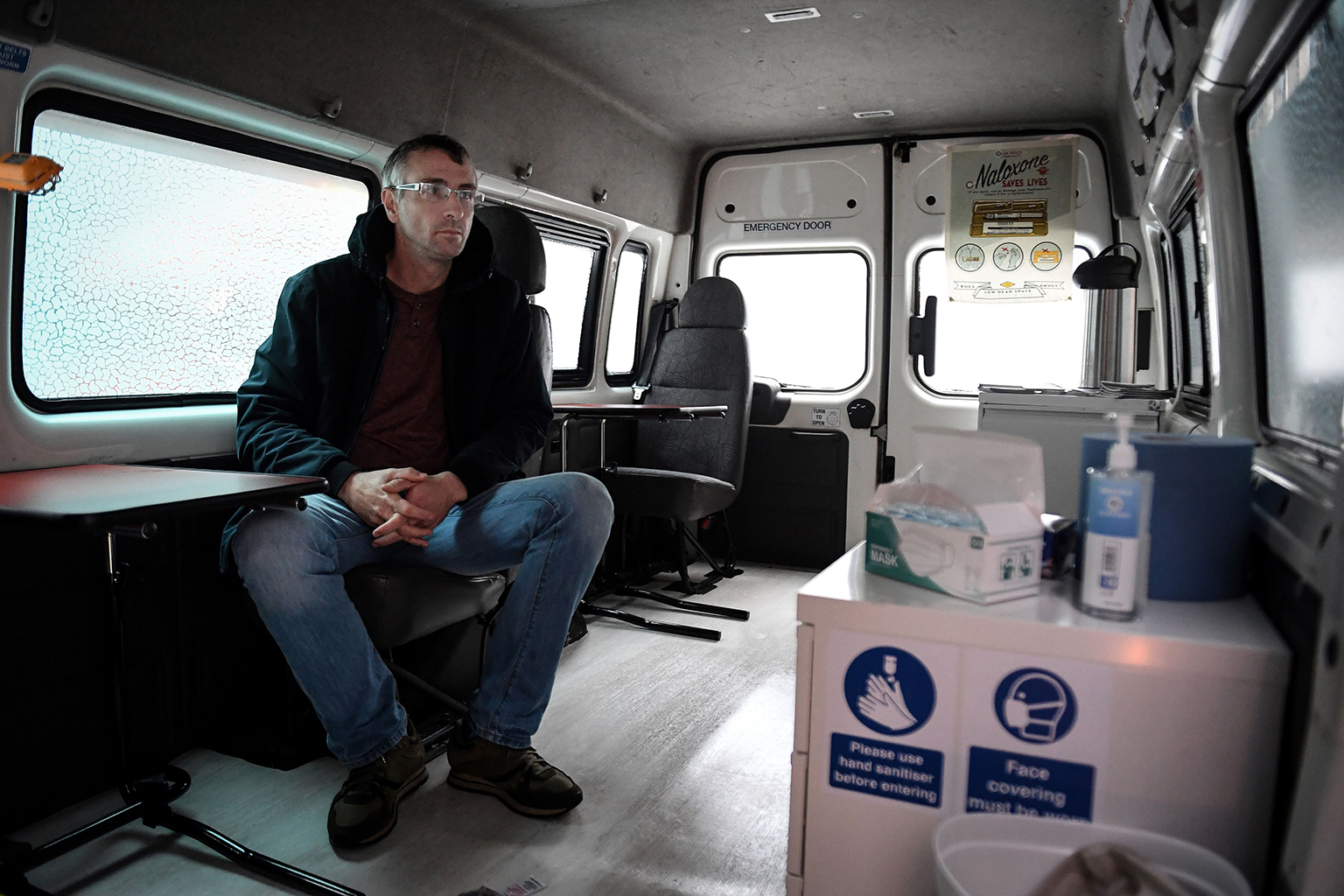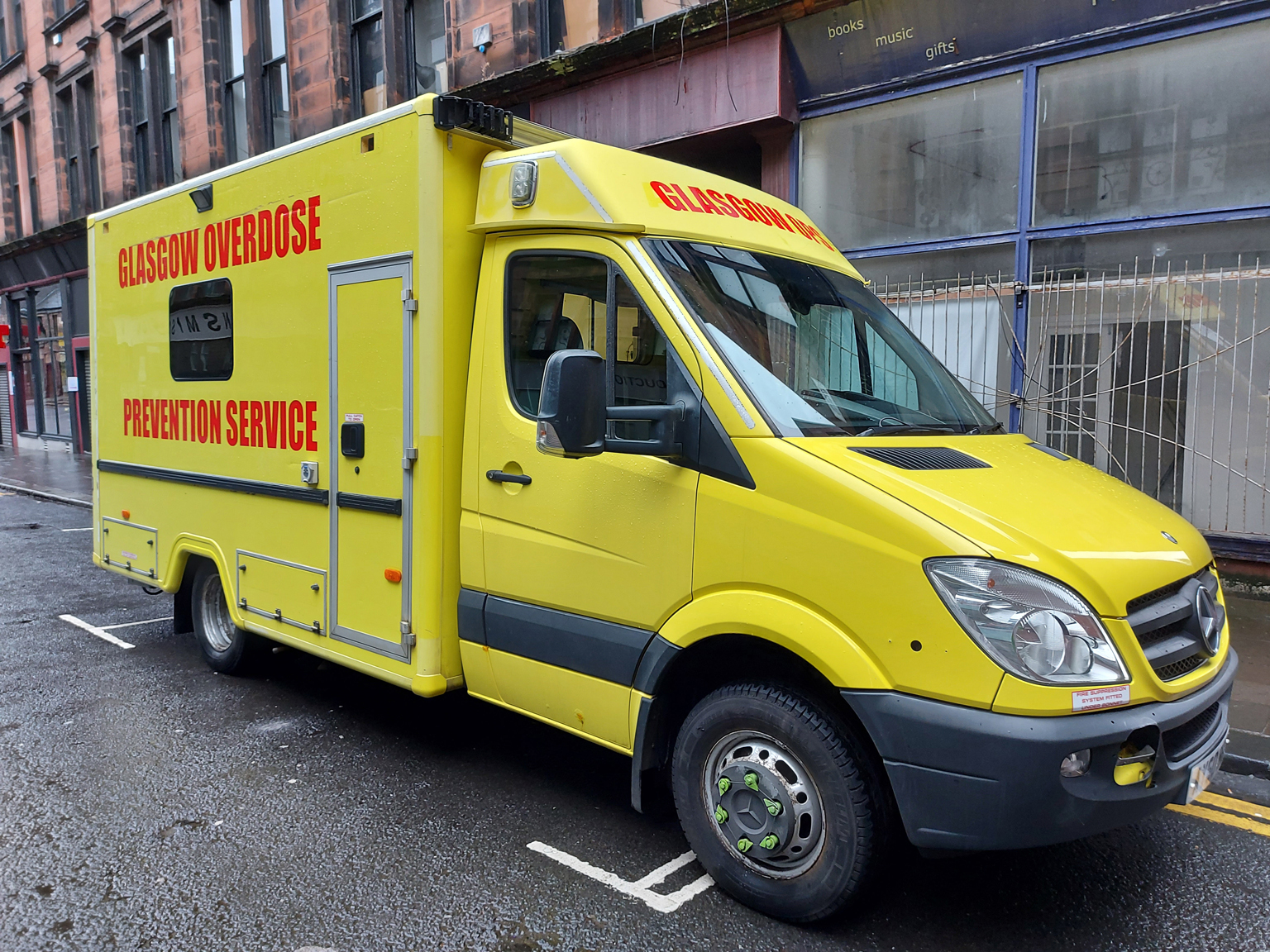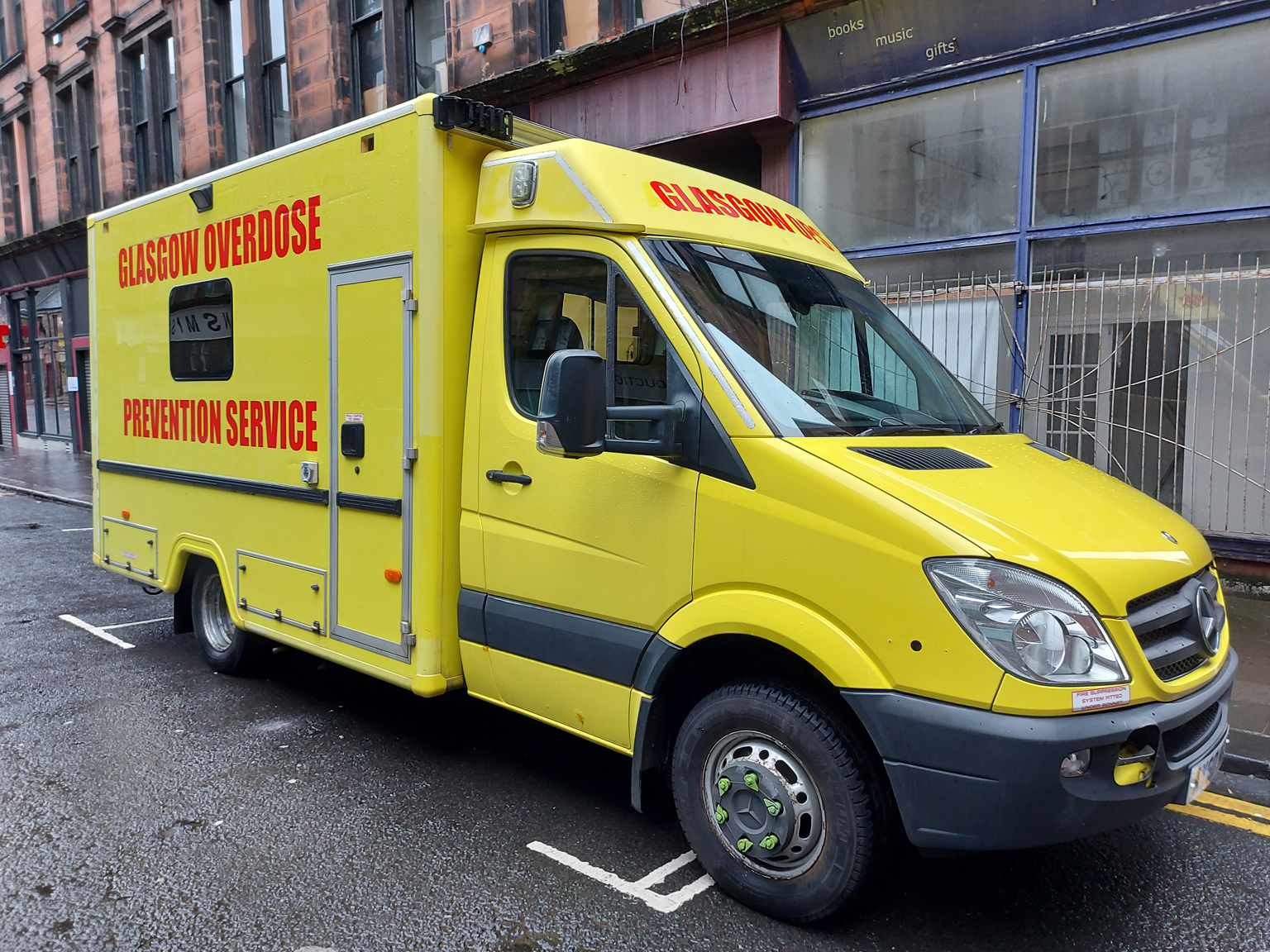Trainspotting was released around the time Krykant first started using heroin. He had suffered childhood trauma. After a serious suicide attempt at 16, drugs helped ease the pain.
Today, Krykant reminisces about another event 25 years ago, making the court roundup of the Falkirk Herald in January 1996.
“The headline was, ‘Local junkie breaks into father’s house’.
“I remember that vividly. I used to have a little flat with a shop across the road. The day the Falkirk Herald came out, I was going for a bottle of cider. At this point I was trying to not take heroin and I was given the suggestion – absolutely insane – to buzz glue and drink loads of alcohol for a couple of weeks. Not long after that, I ended up leaving Scotland. That was the defining factor in moving.”
Krykant ended up in Birmingham where he spent three years in and out of homeless accommodation, sleeping rough, sometimes selling The Big Issue to get by. That part, at least, was a positive memory in a difficult time.
“Selling The Big Issue for me was good, going into the office and just being with other people.”
Advertising helps fund Big Issue’s mission to end poverty
Cut to today and Krykant is making headlines for a completely different reason. He is now a leading campaigner (and Big Issue Changemaker) who spoke to First Minister Nicola Sturgeon for 45 minutes in January about tackling Scotland’s drugs crisis.

Campaigner Peter Krykant in his first mobile overdose prevention centre
In August last year he set up the UK’s first mobile overdose prevention centre in Glasgow from an old minivan, recently upgraded to an ex-ambulance.
As he speaks to The Big Issue, he’s ordering new lettering for it: “Above the window I’m putting GLASGOW OVERDOSE, then underneath, PREVENTION SERVICE. It’s bright yellow so I’m getting capitals bold red.
“There’s no mistaking what we are and what we’re doing. The ambulance is really symbolic. We’re not hiding, this is a health response to a health issue.”
In a city where over the last couple of years, due to needle sharing, there has been the UK’s worst HIV outbreak in three decades, Krykant’s service — “simply an injection facility” — allows users a non-judgemental safe space where people can also get advice and engage with other services.
It’s not just people who inject drugs that benefit, everybody does
Krykant was inspired by similar projects, often known as safe consumption rooms, in Copenhagen and Canada that were started by people who may or may not have been breaking the law – but the results proved the benefits, so the laws were changed.
Advertising helps fund Big Issue’s mission to end poverty
The inability of law and policy to adapt while a crisis spirals makes Krykant believe things have got worse since he was a homeless injecting drug user.
“That was such a long time ago, over 20 years now, and things have not moved forward,” he says. “People are still forced to take drugs in squalid, horrible conditions, when all the data shows that these facilities work and help support people into drug treatment services.
“It’s not just people who inject drugs that benefit, everybody does. There’s less discarded equipment, less shoplifting and anti-social behaviour, less hospital admissions.”

Peter Krykant’s converted ambulance, where he operates Glasgow’s Overdose Prevention Service
He emphasises that his van is not the answer to reducing Scotland’s death rates dramatically. In Glasgow, there are an estimated 500 people publicly injecting, a tiny proportion of the 60,000 in Scotland problematically using substances.
In 2019, the last year figures are available, there were 1,264 drugs-related deaths – 800 of these linked to benzodiazepines – Valium-like drugs that can be bought on the streets for around 50p a pill.
“Every single day somebody could be taking 20, 30 or 40-plus of these street benzodiazepines, nobody knows what’s in them,” Krykant says. “And then they go to the prescribers and ask for help. And they say, you know, I need a prescription to stop taking these illicit ones, and simply they’re told no.
Advertising helps fund Big Issue’s mission to end poverty
“Without an answer to that, there’s not going to be a big reduction in deaths. It’s that simple. To really reduce drug deaths we need heroin-assisted treatment, and more people getting prescription medication quicker.”
In January, Nicola Sturgeon earmarked £250m over the next Parliament to tackle a “national disgrace”.
Sturgeon namechecked Krykant in the announcement and it may not be the last Holyrood hears of him. He plans to stand as an independent for Falkirk East in the Scottish parliamentary elections in May.
“The Scottish Parliament was set up in 1999 and it was said that it would be a place where we would get representation for a wide range of society. I stand as someone who’s went through severe mental health issues, addiction, been homeless. I think I represent a wide range of society. There needs to be changes in government.”
Read more about how to fix Scotland’s drug problem, including Irvine Welsh reflecting on Trainspotting at 25 in the latest edition of The Big Issue out now.











